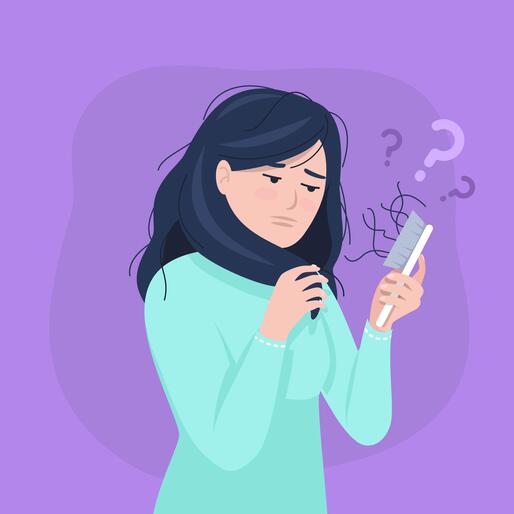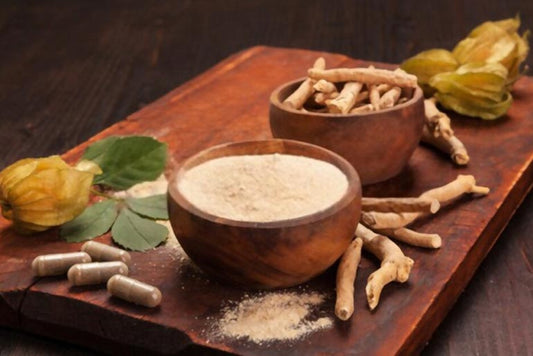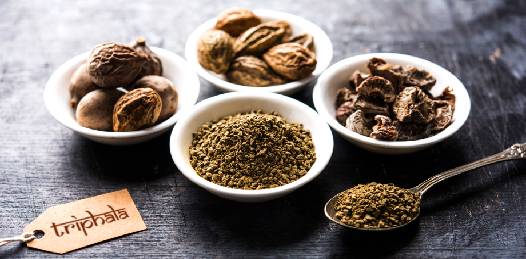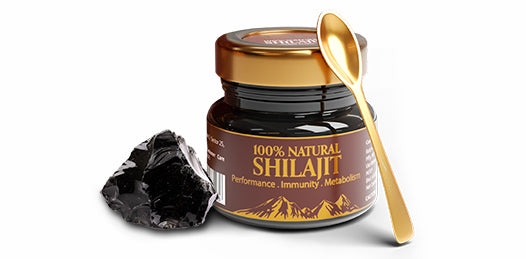

Highlights:
What is PCOS?
Polycystic Ovarian Syndrome or PCOS is a hormonal disorder that affects women of reproductive age. PCOS is known to have affected about 10% of women worldwide. PCOS is a metabolic and reproductive disorder that results in secondary complications like diabetes, cardiovascular diseases, non-alcoholic fatty liver and even cancer.
About 40% of women diagnosed with PCOS have been reported to be depressed and have low self-esteem.
Symptoms of PCOS
1. Irregular menstruation
Irregular periods or missed periods is the first and foremost symptoms reported by many women with PCOS. Women of reproductive age usually get a period once every 28- 32 days. Some gynaecologists suggest there is no harm in getting a period within 45 days. However, PCOS is a cause of concern when a woman only gets less than six periods in a year.
These irregular menstrual cycles are associated with anovulation, a condition in which the ovary fails to release the egg within a stipulated time(which is usually 14 -18 days). The shedding of the endometrium (inner lining of the uterus) might occur even without ovulation. This is evident in women who find it difficult to get pregnant despite having a regular menstrual cycle.
Women with PCOS also might have excessive bleeding, cramps during periods, clots or significantly less bleeding during their period.
2. Weight gain

Inability to lose weight or rapid weight gain is another indicator of PCOS. Despite regular exercise, women might complain of rapid and enormous weight gain or inability to lose weight, especially abdominal fat.
The BMI (Body Mass Index) in such women will be over 28, and there will be visible fat deposition over the lower abdomen, arms, thighs, breasts and glutes. The face would also give a full and puffed look.
3. Difficulty getting pregnant
This is one of the main symptoms reported in women with PCOS. Women usually notice trouble or difficulty in getting pregnant even after a year of unprotected sex. This is due to anovulatory cycles. Usually, an egg gets released from each ovary 14-18 days after menstruation, induced by a surge in estrogen that prepares the uterine lining for embryo formation. In women with PCOS, there is a high level of androgens (mainly testosterone) and low FSH that does not help release the egg into the fallopian tube.
4. Male pattern balding/ hair loss

Presence of higher levels of male hormones like testosterone causes hair fall in women. Women may complain of receding hairline in the initial stages. It is often followed by classical male pattern balding that occurs in the crown region of the head. Women with PCOS also suffer from an oily scalp resulting in dandruff causing hair fall.
5. Acne or oily skin

Prevalence of hormonal imbalance causes excess sebum secretion from the hair follicles opening into the skin resulting in oily skin. Secretion of extra oil also leads to acne. Hormonal acne is also common in women with PCOS. These occur at a specific phase of the menstrual period and are often seen at a particular spot like the cheek or jawline.
6. Presence of facial hair or body hair
Hyperandrogenism (high testosterone levels) causes thick hair growth on the face and body, known as hirsutism. Thick facial hair is a cause of concern and embarrassment in many women with PCOS. It usually occurs in the chin, cheeks and in upper lips.
Dense body hair is visible over the breasts, abdomen and around the areola.
7. Pigmentation in the skin
The presence of dark velvety patches around the neck, underarms, or groin called acanthosis nigricans is seen in women with PCOS.
This is also a result of hormonal imbalance in women who have a tendency to develop insulin resistance.
8. Low libido
Being obese, tired, and lack of female reproductive hormones can decrease sex drive in women. Women with PCOS also experience depression, anxiety, mood swings, and lowered self-esteem causes sexual dysfunction.
9. Fatigue
Chronic fatigue is associated with PCOS. The hormonal imbalance and insulin resistance associated with PCOS results in chronic fatigue. Women may complain of feeling tired even after a good night's sleep. Sluggishness and lethargy reflect on every PCOS woman to heavy menstrual bleeding that causes anaemia and fatigue.
10. Mood changes
Hormonal imbalance, this word may now sound highly repetitive to you, but that is the impact it has on women suffering from PCOS. Feeling low, sad, gloomy, depressed, lack of interest and stressed are some emotions that women with PCOS undergo regularly. Majorly, not due to a lack of effort to find positivity, but the surge of hormones causing negative thoughts are very common.
What causes PCOS?
The exact cause of PCOS is unknown, but several reasons are attributed to PCOS occurrence.
1. Bad dietary choices - High fat or sugary diet
A high fatty or sugary diet is directly linked to the bodyweight of an individual. Although PCOS can occur in slender and heavy women, overweight women are at greater risk of developing PCOS.
A high sugar diet raises blood sugar levels and can lead to insulin resistance, causing PCOS
2. Lack of regular exercise and Sedentary lifestyle
Exercise has many benefits more than regulating weight. Not exercising causes insulin resistance and cardiovascular diseases in women with PCOS.
It doesn't take months of regular exercise to see results with PCOS. Working out, walking, aerobics or running 30 minutes a day gives visible results in managing PCOS within 2-3 weeks.
3. Stress
Stress disrupts the hormonal or endocrine system resulting in the possibility of PCOS. Stress is a significant factor in causing and worsening PCOS. Stress causes a higher level of androgen secretion that worsens the symptoms of irregular periods and PCOS
4. Irregular sleep patterns
Studies state that sleep apnea and insomnia are prevalent in women with PCOS. This results in fatigue or daytime sleepiness in women. And if one succumbs to daytime sleep, that results in low metabolism and weight gain. This becomes a vicious cycle for PCOS.
5. Genetic predisposition
Several studies are going on to determine the genetic predisposition linked with PCOS. Researches say that some genes might be responsible for causing PCOS in women.
PCOS vs PCOD
- PCOD is Poly Cystic Ovarian Disease with symptoms like irregular periods, weight gain, and hormonal imbalance.
- PCOS is called a syndrome because of the set of symptoms occurring altogether at the same time.
- In PCOD, there may be irregular periods, but the women can still ovulate normally. About two-thirds of diagnosed women have PCOD, and the rest one third have PCOS.
- PCOS occurs at a very early stage in life, like from the teenage years. Facial hair and weight gain are evident from a younger age.
- PCOS had severe complications. Women with PCOS may tend to develop cardiovascular diseases, diabetes, obesity and even endometrial cancer.
Tests to identify PCOS
- Your GP or gynae will ask for specific investigation reports to confirm and identify the type of PCOS.
- An Ultrasound scan report of the ovaries confirms the presence of ovarian cysts. The ovaries also may seem to be enlarged than their original size.
- A blood test report to confirm insulin resistance. Hba1c report, fasting blood sugar to rule out diabetes.
- Testosterone - to identify if the male hormones are elevated in the body.
- Anti Mullerian Hormone - might be increased in PCOS.
- Follicle Stimulating Hormone (FHS) - will be normal or low in PCOS.
- Estrogen - might be low or normal with PCOS.
- DHEA - may be elevated
- Androstenedione - may be elevated.
Four types of PCOS

Adrenal PCOS
Adrenal PCOS occurs as a result of the body's response to stress. A higher stress level causes increased secretion of DHEA by the adrenal glands, whereas the other androgens like testosterone and androstenedione secretions are normal.
How do you identify Adrenal PCOS?
If there is no insulin resistance and hormones other than DHEA is normal, one can conclude that it is Adrenal PCOS.
- Take all measures to reduce stress if you have adrenal PCOS.
- Regularise your sleep. Get at least 8 hours of sleep every night. Sleep helps to heal and restore your body from producing more stress hormones.
- Some herbs like Ashwagandha and Brahmi will help you in relaxing your body and mind.
- Practice yoga and meditation.
Insulin resistant PCOS
Insulin resistant PCOS is the common type of PCOS that results in pre-diabetes. In this condition, all the cells in the body stop reacting to insulin, increasing blood sugar levels. thereby causing the pancreas to pump out more insulin
You can identify insulin resistance in your body with some symptoms like fatigue, brain fog, frequent urination, high thirst and hunger. There may also be symptoms of weight gain and inability to lose weight. All classic signs of PCOS will be present.
Eating a low glycemic index diet, exercising and taking some herbs to control insulin resistance will help manage this condition.
Inflammatory PCOS
In this type of PCOS, a high level of inflammation in the body becomes a precursor to the production of androgens resulting in PCOS.
One can identify this type of PCOS with other symptoms of inflammation in the body, such as eczema, psoriasis, IBS, headaches and joint problems.
To support inflammatory PCOS, eliminate foods that are known to cause inflammation in the body. Elimination of refined flours and dairy from your diet itself has proved effective in managing inflammatory PCOS.
Also, identify and eliminate any allergens such as gluten or certain allergy-causing nuts from your diet.
Stay away from harmful chemicals, pesticides, beauty products, dust and smoke that may cause inflammation.
Take care of your gut health. Ayurveda says all inflammatory issues starts with the gut as a result of improper digestion. Maintaining good digestive health itself help you manage inflammatory PCOS.
Post Pill PCOS
This type occurs in women who have weaned off birth control pills. Androgen suppressing pills, once stopped, may trigger a response in the body to produce more male hormones leading to PCOS in women. This can be easily diagnosed with a history of medication in women with no insulin resistance.
This kind of PCOS actually can be resolved with proper diet, lifestyle changes and nutritional support.
How to lose weight with PCOS?
Read 5 tips to lose weight with PCOS here:
- Follow a healthy plating method. Half of your plate should be filled with vegetables, one-fourth of it with carbohydrates and the remaining one fourth with proteins.
- Replace soda or sugary beverages with water
- Exercise at least for 30 minutes 4-5 times a week.
- Practise some kind of stress-reducing regime like yoga, meditation, journal writing, playing instruments etc.
- Hydrate yourself. Drink 3-4 litres of water daily.
How to control PCOS hair loss?
Managing hormonal imbalance itself will reduce hair fall due to PCOS. Intake of some herbs like Ashwagandha, Shatavari and Brahmi also calms your mind and improves hair growth.
Using hair oil infused with Methi Bhringaraj and Amla or Red onion and the Black seed will help reducing hair thinning.
How to control PCOS acne?
Excess androgens cause oil secretions resulting in acne and pigmentation. Using a Tea Tree Foaming Facewash and Tea tree Serum helps in reducing the oil secretion on the face and thus giving you clear and flawless skin.
Can PCOS be cured?
PCOS can be managed by correcting lifestyle, diet and Ayurvedic treatments. However, PCOD can be cured with a proper diet and a healthy lifestyle. Women with both PCOD and PCOS can conceive with no or little medical intervention.
Home remedies for PCOS
- Water boiled with a cinnamon stick is known to regulate blood sugar levels controlling PCOS.
- Taking spearmint tea is known to reduce facial hair by regulating hormones.
- Drinking water soaked with fenugreek seeds or cumin seeds in the morning cleanses the gut and has a cleansing effect on the uterus.
Diet changes for PCOS
- Include at least 2-3 varieties of seasonal fruits and vegetables in your diet.
- Cut on soda, sugary beverages and alcohol.
- Fruits with a low glycemic index like pears, apples, berries, melons and pomegranate are beneficial compared to mango, sapodilla and bananas.
- Vegetables rich in fibre and water content can be preferred, such as cabbage, carrot, beans, cucumber, gourds, and squashes instead of potatoes and yams.
- Use not more than 3 teaspoon of ghee or in your diet.
- Limit intake of salt to 6gms per day and sugar to 20 gm per day.
- Avoid refined food like refined flour, refined oils polished rice and flour without the bran.
- Also, avoid jams, jellies, cookies and pastries rich in sugar content.
- Limit dairy intake, especially the intake of sour cream, cheese and yoghurt.
- Include lean proteins in your diet and avoid red meat.
PCOS workout
- Cycling/ walking/ jogging for at least 30 mins increases cardiovascular activity and maintains weight and hormonal balance.
- Zumba or aerobics practiced regularly is also very helpful.
- Suraya Namaskar has proven very effective in regularizing periods and curing the symptoms of PCOS.
- Yoga is a stress buster, relaxes the body and the mind helping to cure PCOS.
Ayurveda and PCOS
Ayurveda believes in detoxification and cleansing the gut and uterus as a first step to cure PCOS. Some Ayurvedic medications like Chandraprabha Vati, Saptasaram kashayam, Sukamaram kashayam and kanchnar guggulu have proven effective in treating PCOS and infertility.
Ayurvedic medicines along with some Panchakarma treatments and diet will help you cure your PCOS related infertility. However, diet changes and exercise will help you manage your PCOS in the long run. Be sure to beat PCOS with a positive mindset!











